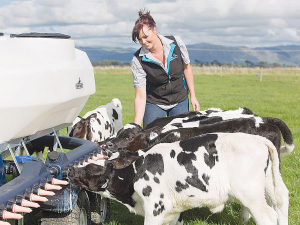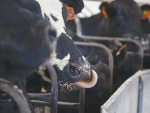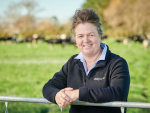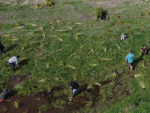It says farmers want to create a thriving environment for their calves to grow up in and to suit their own needs.
Mob sizes, the number of teats, troughs or manifolds, mobile feeders or pen feeders are all things that need to be considered.
A lot of thought goes into calf rearing and Stallion says this is reflected in their mobile feeders.
The transition between feeding out in the pens and in the paddock is unique for every farmer and in most cases a physical strain when carrying around buckets of milk around.
Stallion says it strives to develop and create new products and designs for the benefit of the farmers.
Eight years ago, Stallion came up with the Mixer Tanker Feeder, a mobile feeder that self-mixes milk power and self-cleans, all while feeding out milk to hungry calves.
The company says it aims to take the strain out of calf rearing.
This year, Stallion has released a new mobile feeder design, the Open Trough Mixer Tanker Feeder (OTM).
Currently available in 50 teats, the OTM combines the Open Trough Feeder and Mixer Tanker Feeder to create a feeder design many had requested. Now farmers will be able to choose between a manifold mixer tanker feeder or open trough mixer tanker feeder.


















